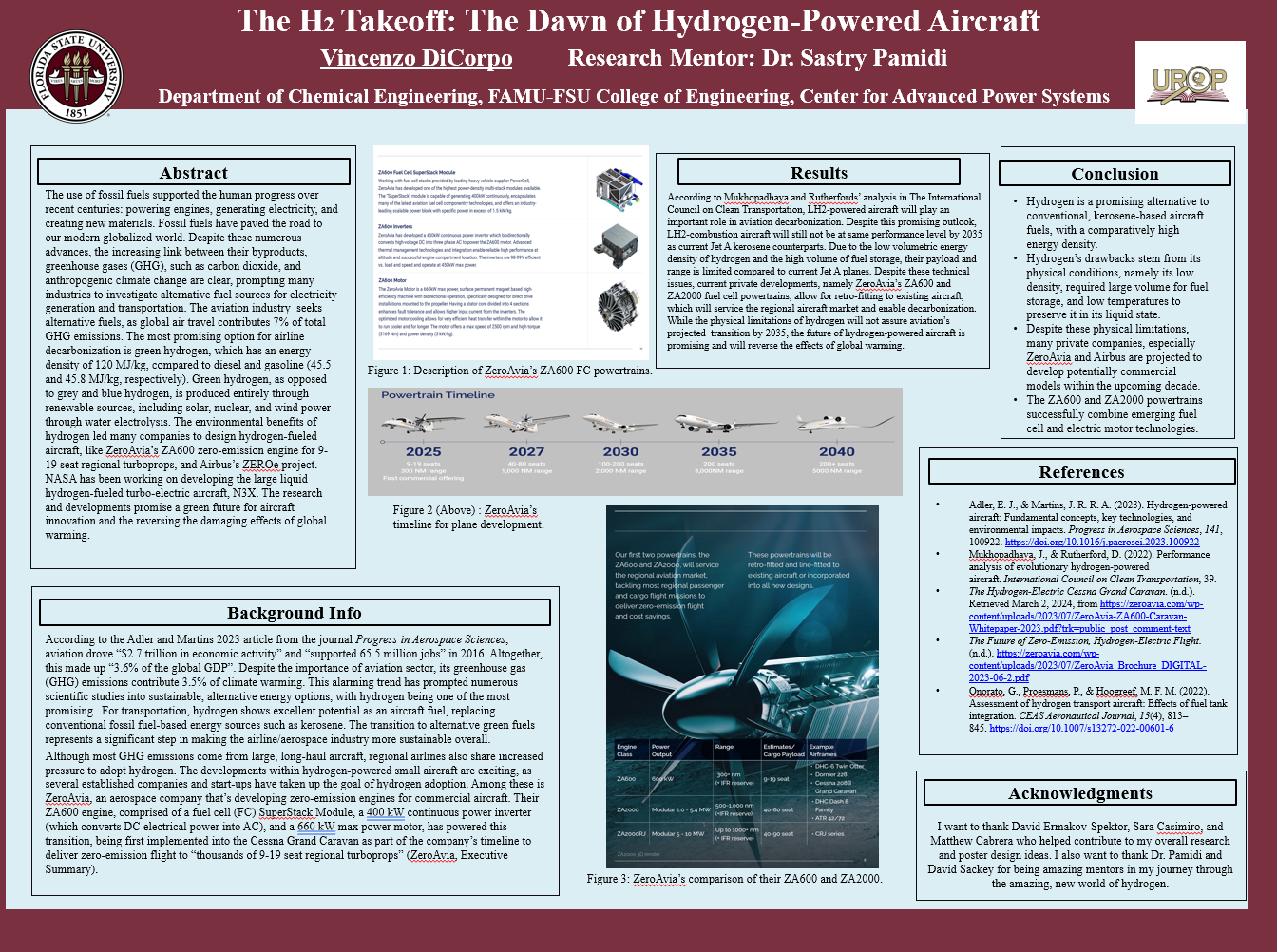Research Symposium
24th annual Undergraduate Research Symposium, April 3, 2024
Vincenzo DiCorpo Poster Session 5: 4:00 pm - 5:00 pm/143

BIO
My name is Vincenzo DiCorpo and I'm a second-year chemical engineering major at FSU. I was born and raised in Ft. Lauderdale, and I've always been interested in STEM (especially chemistry and physics) and the opportunities those related fields present. My research area currently focuses on renewable energy, sustainability, and hydrogen-powered aircraft, especially the mechanical and electrochemical aspects of hydrogen fuel cell (FC) powertrains in planes.
Outside of school, I enjoy going scuba diving with my friends, playing music, and practicing my bilingual skills (in Spanish and Portuguese).
The H2 Takeoff: The Dawn of Hydrogen-Powered Aircraft
Authors: Vincenzo DiCorpo, Dr. Sastry PamidiStudent Major: Chemical Engineering
Mentor: Dr. Sastry Pamidi
Mentor's Department: Electrical & Computer Engineering Mentor's College: FAMU-FSU College of Engineering Co-Presenters: None
Abstract
The use of fossil fuels supported the human progress over recent centuries: powering engines, generating electricity, and creating new materials. Fossil fuels have paved the road to our modern globalized world. Despite these numerous advances, the increasing link between their byproducts, greenhouse gases (GHG), such as carbon dioxide, and anthropogenic climate change are clear, prompting many industries to investigate alternative fuel sources for electricity generation and transportation. The aviation industry seeks alternative fuels, as global air travel contributes 7% of total GHG emissions. The most promising option for airline decarbonization is green hydrogen, which has an energy density of 120 MJ/kg, compared to diesel and gasoline (45.5 and 45.8 MJ/kg, respectively). Green hydrogen, as opposed to grey and blue hydrogen, is produced entirely through renewable sources, including solar, nuclear, and wind power through water electrolysis. The environmental benefits of hydrogen led many companies to design hydrogen-fueled aircraft, like ZeroAvia’s ZA600 zero-emission engine for 9-19 seat regional turboprops, and Airbus’s ZEROe project. NASA has been working on developing the large liquid hydrogen-fueled turbo-electric aircraft, N3X. The research and developments promise a green future for aircraft innovation and the reversing the damaging effects of global warming.
Keywords: Hydrogen, fuel cell, hydrogen-powered aircraft

